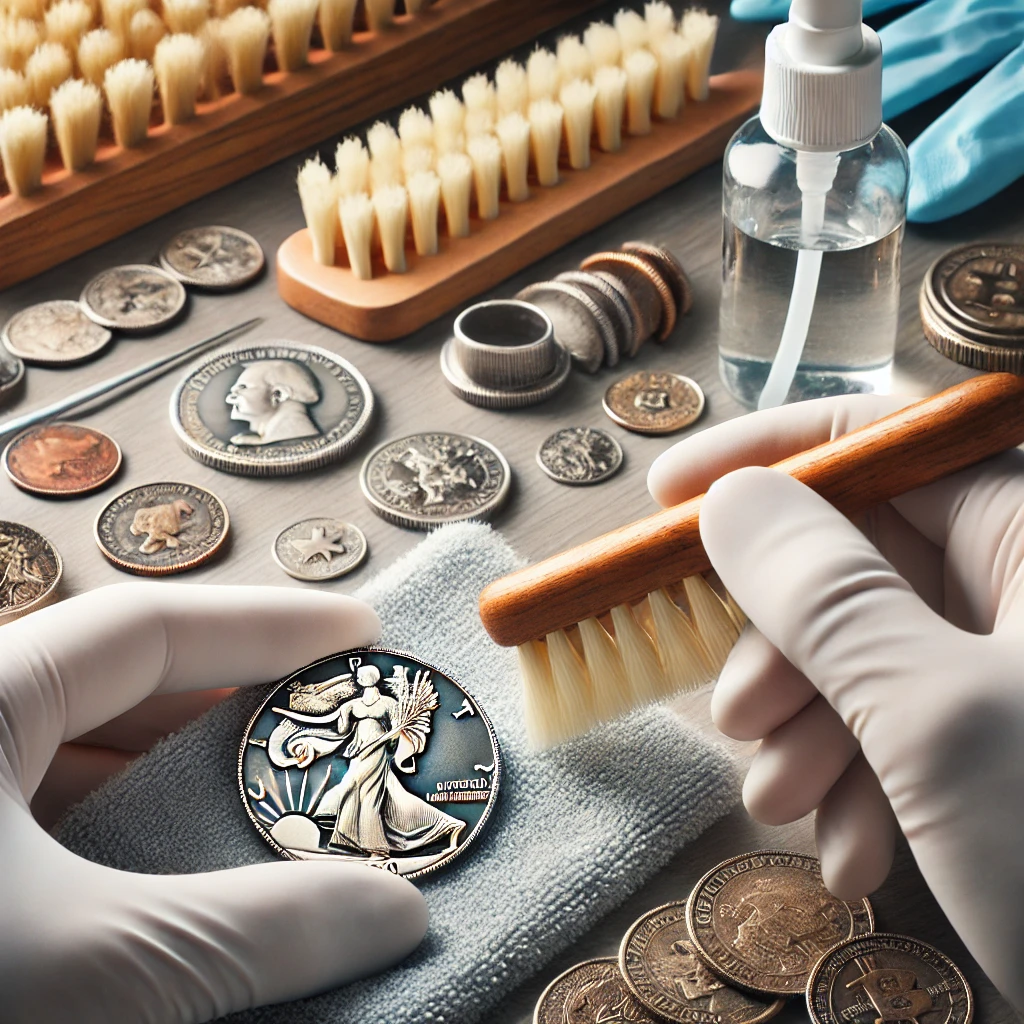When it comes to cleaning rare coins, the first thing you need to know is that cleaning can actually lower a coin’s value if done incorrectly. Collectors often prefer coins in their natural state, even if they’re dirty or tarnished, so you really have to decide if cleaning is worth the risk.
If you think it is, the safest way to start is by soaking the coin in distilled water. Distilled water won’t leave mineral spots like tap water can. Let it sit for a while maybe 15 minutes or even overnight if it’s really grimy. After soaking, rinse it gently with more distilled water. No rubbing or scrubbing yet!
If dirt is still clinging on, you can add a tiny drop of mild, plain dish soap to distilled water and swirl the coin around. Be very gentle here. For stubborn dirt in crevices, you might use a soft brush, like a makeup brush, but go slow and brush in one direction. Scrubbing is a no-go — it can scratch the surface.
When it’s clean, rinse the coin thoroughly with fresh distilled water to remove any soap residue. To dry it, pat it softly with a cloth or let it air dry. Never rub it with the cloth, though, because that can leave marks.
For tarnish, it’s a whole other story. Tarnish, or “toning,” often adds character and even value to rare coins, so you don’t want to mess with it unless you’re absolutely sure it needs to go. And no matter what, keep metal polish and harsh chemicals like vinegar far away — they’ll do way more harm than good.
Honestly, if the coin is rare or valuable, your best bet is to let a professional handle it. Services like PCGS or NGC specialize in cleaning and restoring coins safely, without ruining their value. So, if you’re unsure, leave it to the pros!
